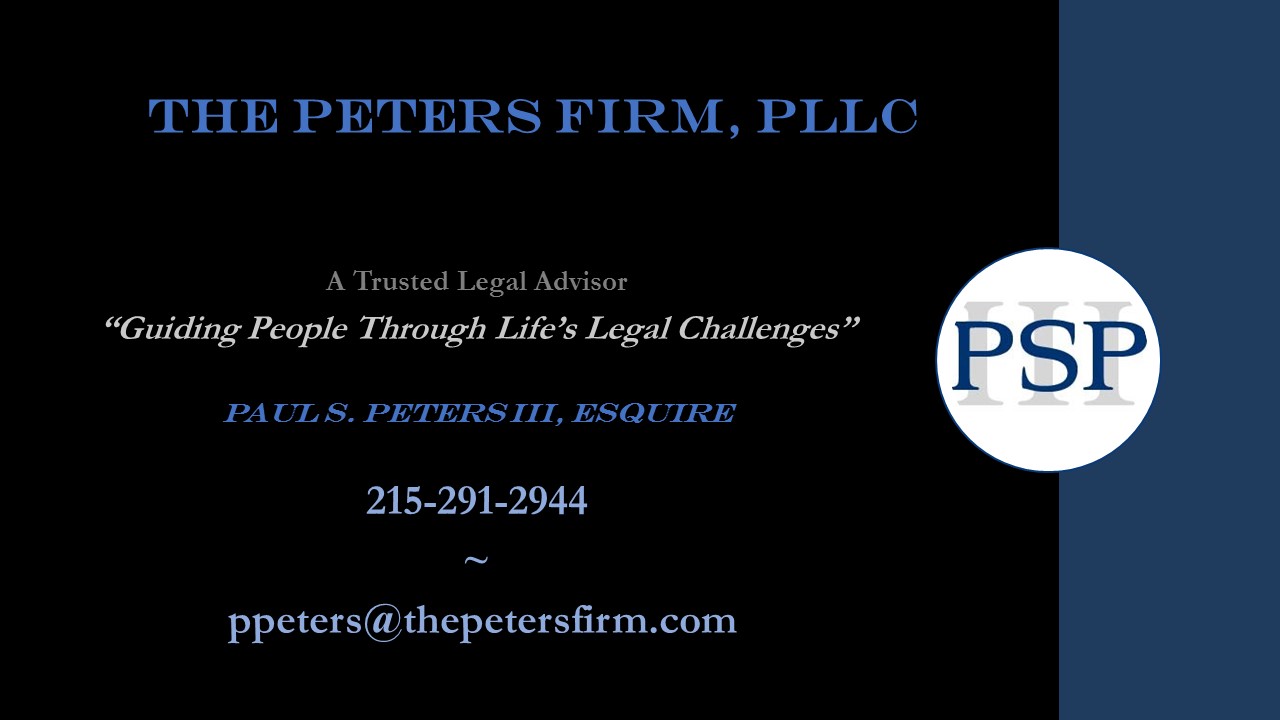
COVID-19:
A Retail Apocalypse and
Chapter 11 Bankruptcy Tsunami?
Will COVID-19 result in a Retail Apocalypse and Chapter 11 Bankruptcy Tsunami?
With the economy shut down lasting longer than most companies expected, coupled with the failure of the CARES Act’s first round of SBA/PPP funding, both large and small businesses are unfortunately moving to the catastrophe phase. This phase will come with a mix of continued layoffs, closings, and Chapter 11 Bankruptcy Filings.
What Retailers Are Facing Trouble?
While the list of small and large businesses facing trouble could fill a multitude of pages, there is a group of large companies/retailers that were struggling before the COVID-19 outbreak. Some of the companies may have been able to pull through during 2020, but COVID-19 is probably the straw that will break the camel’s back.
In late 2019 and early 2020, retailers such as Pier 1, Modell’s Sporting Goods, Papyrus, Diesel, Forever-21, Earth Fare, and True Religion filed for bankruptcy protection. Some with the intent of reorganizing and surviving, others simply liquidating and closing forever or selling their intellectual property. The retailers with plans to survive when they filed Bankruptcy will probably see that intent vanish with the impact of COVID-19.
Coming into 2020 many retailers were facing financial crises, with store closings, layoffs, credit rating downgrades, and Bankruptcy filing consideration. The list is voluminous and includes Gap, Inc. (GPS), GNC Holdings (GNC), H&M, Nordstrom (JWN), Neiman Marcus, JC Penny (JCP), Walgreens, Rite Aid (RAD), Stein Mart (SMRT), AMC Entertainment (AMC), Lowes (LOW), Best Buy (BBY), Tailored Brands (TLRD) (Men’s Wearhouse & Jos. A. Bank), Tapestry (TPR) (Coach and Kate Spade), Capri Holdings (CPRI) (Michael Kors, Versace, and Jimmy Choo), L Brands (LB) (Victoria’s Secret and Lane Bryant), Express (EXPR), Toms, Levi Strauss (LEVI), and Cheesecake Factory (CAKE) (preemptively announced it will not pay rent for its 300 locations).
COVID-19 is creating what economists are referring to as a “retail apocalypse.” This apocalypse may result in a “Bankruptcy Tsunami.” There is much concern over whether the United States Bankruptcy Courts are equipped to handle the flood of corporate and personal bankruptcies anticipated to begin soon.
What is a Chapter 11 Bankruptcy?
The United States Bankruptcy Code creates a few bankruptcy options for individuals and businesses. The typical bankruptcy filings are Chapter 7, Chapter 13, and Chapter 11. When it comes to the challenges facing retailers and other companies during the COVID-19 pandemic, Chapter 11 will be the filing of choice as it is designed for large corporate bankruptcy filings.
Chapter 11 Bankruptcy filings typically are newsworthy when well-known corporations file for protection. Known corporate Chapter 11 Bankruptcies have been General Motors (GM), United Airlines, K-Mart, Toys R’ Us, Payless, Sears, David’s Bridal, Gymboree, and the history of Donald Trump’s corporate bankruptcy filings.
A Chapter 11 bankruptcy allows struggling businesses to restructure their finances and work with creditors to salvage the business’s existence. Chapter 11 cases are filed by corporations, partnerships, and limited liability companies. Individuals can file under Chapter 11 if they have too much debt or income to qualify under Chapters 7 and 13.
In most Chapter 11 cases, a corporation continues to operate normally. The bankruptcy court can take over operations from the corporation if it finds enough cause, such as fraud, dishonesty, incompetence, and gross mismanagement of the debtor’s affairs. While the corporation ordinarily continues business as usual after it files Chapter 11, the corporation loses control over significant decisions, which the bankruptcy court now makes. For example, the bankruptcy court must approve: (1) any sale of assets, such as real estate or subsidiaries; (2) actions taken with regarding the breaking of or entering into a lease; (3) entering into any mortgage or secured financial arrangements; (4) liquidating and closing the business (furniture stores frequently have liquidation sales; (5) any actions impacting employee pay and benefits, union dealings, and hiring professionals such as attorneys and certified public accounting firms. Creditors, shareholders, and other parties in interest may support or oppose actions that require bankruptcy court approval. The bankruptcy court will consider input from creditors and other parties in deciding how to proceed.
Chapter 11 Reorganization Plans
A Chapter 11 plan is the corporation’s proposal to restructure its financial affairs. It is a contract between the corporation and creditors to determine the corporation’s operation and payment of financial obligations going forward. Most plans provide for at least some downsizing of the debtor’s actions to reduce expenses and free up assets. In some cases, “liquidating plans” are proposed to provide for a total shutdown of the debtor’s operations and the orderly sale of its remaining property. Creditors are entitled to vote on whether they accept a proposed Chapter 11 plan. At least one class of “impaired” creditors must vote in favor of a Chapter plan for its approval by the bankruptcy court. An “impaired” claim is an obligation that will not receive full payment upon plan confirmation or when originally due. If the vote results in the approval of the plan, it is then submitted to the bankruptcy court for final review and approval.
Small Businesses and Chapter 11 Filings
Depending on the circumstances, small businesses have three potential bankruptcy options:
Chapter 7 – In Chapter 7, a trustee is appointed to ensure the company ceases operations, he/she then sells all available assets, and pays creditors to the extent funds are available for distribution. Depending on income, individuals who own and operate small businesses as sole proprietorships may file Bankruptcy under Chapter 7.
Chapter 13 – Chapter 13 is a restructuring option for small businesses owned and operated by individuals (a sole proprietorship). Only individuals may file Chapter 13, it is not an option for partnerships, limited liability companies, or corporations. Chapter 13 eligibility is also subject to debt limits. An individual that owes more than $419,275 for unsecured debt and $1,257,850 for secured debt cannot file Chapter 13.
Chapter 11 – Small businesses shy away from Chapter 11 because it is expensive, risky, time-consuming, and complex; however, Chapter 11 is only for small businesses that are partnerships, LLCs, or corporations that are seeking to restructure and continue to operate. Chapter 11 is also the only option for individual business debtors who want to reorganize but owe too much money to meet Chapter 13’s eligibility requirements.
Under the Bankruptcy Code, a “small business debtor” is a person or entity who: (1) is engaged in business or other commercial activities; and (2) owes no more than $2,725,625 as of April 1, 2019 ($2,566,050 for cases filed through March 31, 2019) in total claims, excluding obligations owed to insiders such as family members of the business owners.
Future Considerations and Concerns
The foremost concern is how many companies will turn to Bankruptcy, resulting in continued job losses or no available jobs when the economy reopens. The next concern is pertaining to whether the bankruptcy courts can handle the flood of large and complex bankruptcies coming its way.
An area of major concern are large malls and discount retailers. For example, in the Philadelphia area, Simon Properties owns some of the area’s largest shopping centers. They own the King of Prussia Mall, Oxford Valley Mall, Montgomery Mall, Lehigh Valley Mall, Philadelphia Premium Outlets, Philadelphia Mills, and Lincoln Plaza. All these shopping centers house or are anchored by retailers mentioned above. For instance, the King of Prussia Mall caters to many luxury retailers, which will struggle going forward and is anchored by many of the “big box” stores facing trouble: Nordstrom, Neiman Marcus, Macy’s, Lord & Taylor, Best Buy, and Dick’s Sporting Goods. While the stores begin to close or file for bankruptcy protection, does it ultimately lead to the large Real Estate Investment Trusts, such as Simon Properties, also to close or seek bankruptcy protection?
The other retail area of concern is those considered discount retailers. Examples are HomeGoods, TJ Maxx, Marshall’s, Kohl’s, and Burlington Coat Factory. Since the model for these retailers is a Hodge Podge of discounted designer merchandise, they do not have a strong online sales presence. Not only are they struggling with the lack of online ability, when the economy reopens it will be a while before people feel comfortable shopping in stores for non-essentials. Lastly, I believe Goodwill Stores and the Salvation Army are facing dire circumstances and outcomes.
The concerns surrounding businesses and the economy continue to surmount as the COVID-19 shut down drags on with no clear plan, a dysfunctional economic relief program, shameful political infighting, and dismissiveness toward medical and economic experts.
– Paul S. Peters III, Esquire is an attorney located in Elkins Park, PA serving clients in Montgomery, Philadelphia, Bucks, Delaware, Chester, Lehigh, Lancaster, Northampton, and Berks Counties in the areas of Employment Law & Small Business Needs, Bankruptcy, Criminal Defense, Family Law, and Estate Planning.
TRUSTED, COMPASSIONATE, ZEALOUS, AND EXPERIENCED PENNSYLVANIA EMPLOYMENT LAW ATTORNEY
If you are involved in an Employment Law matter as an employee or employer and need legal guidance, advice, and consultation in: Montgomery, Philadelphia, Bucks, Delaware, Chester, Lehigh, Lancaster, Northampton, Berks, Adams, Cumberland, Dauphin, Franklin, Fulton, Huntington, Juniata, Lebanon, Mifflin, Perry, Snyder, York Bradford, Cameron, Centre, Clinton, Lycoming, Montour, Northumberland, Potter, Sullivan, Tioga, Union, Carbon, Columbia, Lackawanna, Luzerne, Monroe, Pike, Schuylkill, Susquehanna, Wayne, and Wyoming County
It is important you contact the trusted and experienced Employment Law Attorney:
Paul S. Peters III, Esquire at:
215-291-2944
ppeters@thepetersfirm.com



